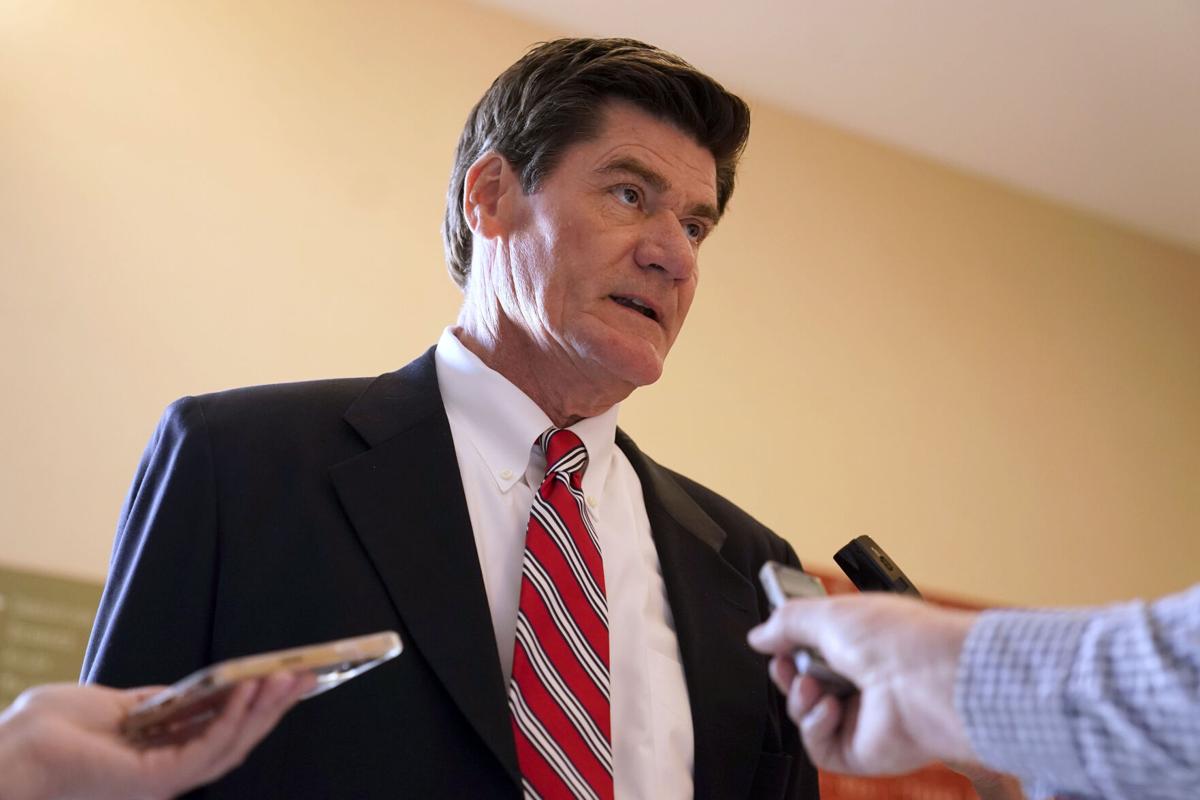Craig Thompson has been commissioner of the Mountain West Conference longer than there has been a Mountain West Conference.
He accepted the job on Oct. 15, 1998, three months before the conference began operations on Jan. 4, 1999.
It was so long ago that at the time, Brigham Young, TCU and Utah were all a decade away from departing.
On Wednesday, Thompson announced he would step down at the end of the year.
Our view: The move has much less to do with realignment threats than with Thompson seeing his vision of an expanded playoff come to fruition — he was an architect of the 12-team model — and with the massive change coming to college athletics in the form of NCAA restructuring and revenue sharing with the athletes.
This is the time to leave, unless you plan to stay through the tumult.
All those issues will be priorities for Thompson’s replacement.
Before we delve into potential candidates, some context on the list below:
For all the talk about realignment, and specifically about the Pac-12 poaching one or more schools from the Mountain West, we view the conference as a highly viable entity moving forward because of geographic alignment and the expanded playoff.
The allocation of automatic bids for the six highest-ranked conference champions effectively sets up a showdown between the MW champ and the American champ for a berth — a vastly more advantageous structure than the current model.
Given the current environment, the Mountain West should strongly consider candidates with deep existing relationships in college football. The conference might experience membership turnover (outgoing, incoming or both), and the ability to back-channel, to have contacts you can trust, will be vital.
Once the university presidents settle on an executive search firm to handle the legwork, a candidate pool will emerge.
Three names immediately come to mind as pantheon candidates, each with loads of industry experience in the western third of the country: Alabama athletic director Greg Byrne (previously: Arizona), Oregon athletic director Rob Mullens and Pac-12 deputy commissioner Jamie Zaninovich.
They are unlikely to be interested in the position, but the MW should perform due diligence and place initial calls to all three.
Assuming that trio is off the market, five names come to mind:
Wyoming athletic director Tom Burman: If the conference opts to remain in-house but wants to elevate an athletic director, Burman could be atop the list. He has deep roots in the MW and, unlike several of his equally-respected peers, doesn’t work for an institution that could be jumping to another conference before a commissioner is even hired. As long as the MW exists, Wyoming will be a part of it. And that continuity could make him the top internal AD candidate.
MW deputy commissioner Bret Gilliland: One of the MW’s first employees has served as deputy commissioner since 2005. In other words, it would appear Thompson has been grooming his chief lieutenant for the job. There is much to be said for stability, for known quantities and minimal disruptions. And the MW presidents might agree with that notion. The longer the search goes, the more likely it becomes that they seek an external candidate.
Ex-Utah athletic director Chris Hill: The man who ushered the Utes into the Pac-12 stepped down from his position in 2018 but continues to monitor the college football scene. We don’t envision Hill as a long-term solution. But the MW must focus on the next three or four years and all the inevitable tumult. The model for this option is Chuck Neinas, the former Big Eight commissioner who parachuted in to stabilize the Big 12 a decade ago after Nebraska, Texas A&M and Colorado departed.
USC football executive Ed Stewart: His official title is executive senior associate athletic director. Essentially, Stewart oversees the USC football program. But Stewart’s previous life makes him a prime candidate for the MW job: He spent many years as chief of football operations for the Big 12. And before that, he was a captain of Nebraska’s 1994 national championship team. Stewart is well-connected in the industry and understands how the chess pieces move. Whether he’d consider the job so soon after joining USC, we cannot say.
Big Sky commissioner Tom Wistrcill: Yet another option linked to realignment and the potential for the MW to eventually add schools. (The top programs in the Big Sky would be prime candidates.) Wistrcill has seen college athletics from the inside, as a commissioner and athletic director, and the outside, as a senior vice president at Learfield, the multimedia company. Whether the MW presidents would agree to hire someone from the FCS ranks, we also cannot say.





